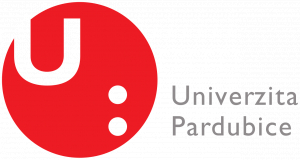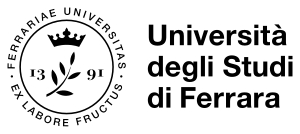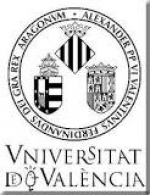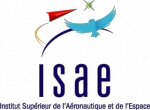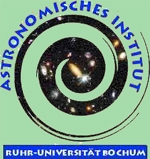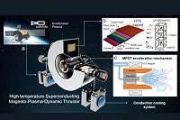Displaying items by tag: university
University of Pardubice
The University of Pardubice builds on an almost seventy-year long tradition of higher education in the Pardubice Region. The Chemical College (later known as the Institute of Chemical Technology) was founded in 1950 to address the needs of the East Bohemia Region, which had a highly developed chemical industry providing extensive opportunities for research in the field.
The character of the Institute notably changed after 1990: new faculties were founded, offering a wide range of study programmes, not only chemistry-related. The name - University of Pardubice - has been used since 1994, reflecting the new character of the educational institution. Based on longstanding tradition, the university is committed to making educational opportunities accessible to the diverse student population from across the Czech Republic and more than 60 countries.
As of 2021 there is no space industry/research specialized department, but remote sensing and GNSS applications are part of various study programmes and research topics.
University of Ferrara
The University of Ferrara was founded on March 4, 1391 by Marquis Alberto V D'Este with the permission of Pope Boniface IX. The Studium Generale was inaugurated on St. Luke's Day (October 18) of that year with courses in law, arts and theology. After the unification of Italy, Ferrara University became a free university with faculties of Law and Mathematics, a three-year course in Medicine (reduced to two years in 1863-64), as well as Schools of Veterinary Medicine (abolished in 1876), Pharmacy, and for public Notaries.
After World War II, it started to be state-supported and this allowed the opening of many faculties and research departments. The most remarkable growth took place between the '70s and the '80s, when Prof. Antonio Rossi was in charge of it as Rector.
University of Valencia
The University of Valencia (also known by the acronym UV) is a university located in the Spanish city of Valencia.
It is one of the oldest surviving universities in Spain, and the oldest in the Valencian Community, and is regarded as one of Spain's leading academic institutions. The University was founded in 1499, and currently has around 55,000 students. Most of the courses are given through the medium of Spanish, but the university has promised to increase the amount of courses available in Valencian. Moreover, in some degrees part of the teaching is in English.
University of Groningen
The University of Groningen is a research university with a global outlook, deeply rooted in Groningen, City of Talent.
Quality has had top priority for four hundred years, and with success: the University is currently in or around the top 100 on several influential ranking lists. In addition, we collaborate with a number of renowned foreign universities, including Uppsala, Göttingen and Ghent. The University of Groningen is very popular with its 27,000 students and 5500 staff members from home and abroad. Talent is nurtured, enabling the University to bridge the gap between science and society. We are committed to actively collaborating with our social partners, with a special focus on the research themes Healthy Ageing, Energy and Sustainable Society
Brunel University
Brunel University is a public British research university located in Uxbridge, London, United Kingdom.
It was founded in 1966 and is named after the Victorian engineer Isambard Kingdom Brunel.
It focuses on Research and Education
University of Central Florida (UCF)
The University of Central Florida, UCF, is a public research university located in the USA, in Orlando, Florida.
The University of Central Florida opened in 1968 as Florida Technological University, with the goal of providing highly-trained personnel to support the Kennedy Space Center. the university's academic scope had expanded to encompass other disciplines, "Florida Tech" was renamed the University of Central Florida in 1978.
UCF is a space-grant university and has made noted research contributions in several scientific fields.
UCF has a satellite campus at the Kennedy Space Center in Cape Canaveral.
UCL Department of Space & Climate Physics
The UCL Department of Space & Climate Physics, incorporating the Mullard Space Science Laboratory, Surrey, is one of the UK's largest university space science group and a leader in interdisciplinary space science initiatives.
UCL is the University College of London.
The department offers a unique environment at the forefront of space science research. Scientists, students and engineers design, build and test cutting-edge space-borne instruments and analyse the data they return. Our scientists set future science agendas through exploitation of current assets and design of future space missions to advance our knowledge of the Universe. Close contact with space agencies such as ESA and NASA and with industrial research teams promotes the development of transferable skills, thereby enhancing job prospects.
International Research School of Planetary Sciences (IRSPS)
The International Research School of Planetary Sciences (IRSPS) is a non-profit and independent institution devoted to research and graduate studies in the fields of planetary sciences and planetary geology.
Planetary research mainly deals with the sub-disciplines of geology, geochemistry, geophysics, petrology, and exobiology. However, the IRSPS is not limited to these subjects and it welcomes scientific contributions from any field of planetology. Also, the educational programs are not restricted to those fields and they will cover the entire spectrum of planetary disciplines by joint ventures and collaborations with other international institutions.
It is based in Pescara, Italy.
Institut Supérieur de l'Aéronautique et de l'Espace (ISAE)
The Institut Supérieur de l'Aéronautique et de l'Espace or ISAE is the name for the French aerospace engineering school.
It is located in Toulouse, France. The "Institut Supérieur de l’Aéronautique et de l’Espace" (ISAE) was created in 2007 from the merger of two prestigious French Engineer School: SUPAERO (founded in 1909) and ENSICA (founded in 1945).
The Institute provides high-level Graduate Programs in engineering for Space and Aerospace domains, Master’s degrees, Postgraduate Specialized Masters, PhD degrees. This opens to the students a wide range of career opportunities: engineering, research and development, logistics, consulting, finance, etc.
ISAE also develops a very active research policy.
Astronomisches Institut der Ruhr-Universität Bochum
The AIRUB (Astronomisches Institut der Ruhr-Universität Bochum) is the astronomy department of the Ruhr-Universität Bochum university, one of the biggest university of Germany.

